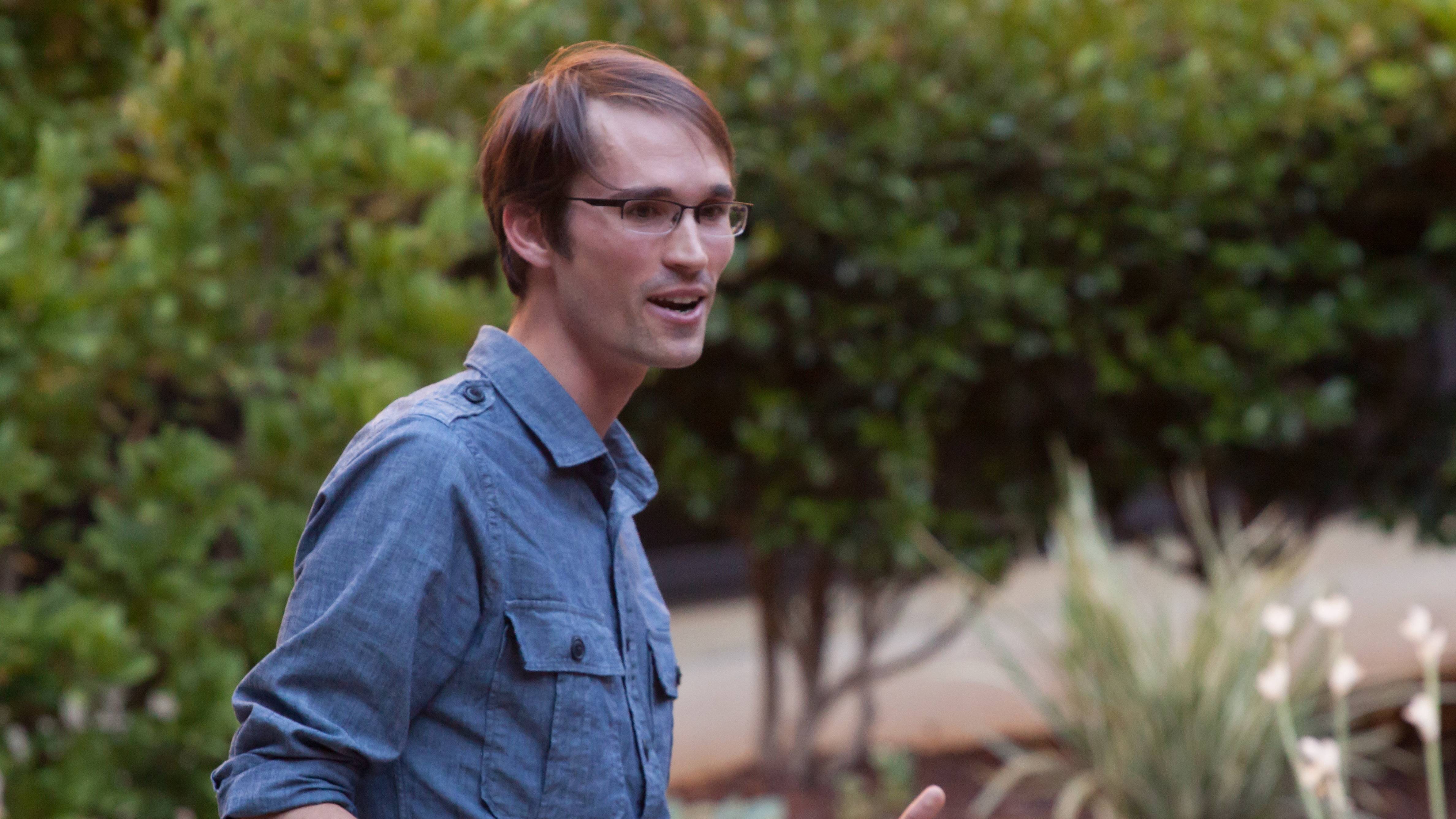Mission Sourcing to Save the World Faster

Gavin McCormick is Cofounder and Executive Director of WattTime, a Fast Forward alumni. Gavin’s tech nonprofit journey is quite unique, and last week he came to our Accelerator session graciously hosted at HPE’s Palo Alto office to share some of the lessons he’s learned along the way.
Gavin and his cofounder Anna Schneider founded WattTime to give consumers the option to power their homes and appliances through the cleanest energy sources available, rather than passively using dirty energy. This spring, WattTime joined one of the most prestigious nonprofits in sustainability, Rocky Mountain Institute. Through this subsidiary agreement, WattTime’s technology can be effectively distributed and implemented across the globe.
Speaking to our 2017 cohort, Gavin explained how WattTime leverages its position as a tech nonprofit to spark transformative shifts towards responsible energy consumption. While it’s no secret that tech nonprofit entrepreneurship is not the easiest path, Gavin believes too little attention is paid to the advantages that come with this status.
Stop Worrying About the Competition
A nonprofit can be built around a movement, rather than profit motive. Having a mission-driven value proposition and message makes it easier to find talent and support when you are resource constrained. WattTime has never had a huge budget, but from its early days consistently received unsolicited calls from companies, other nonprofits, and even government officials at all levels asking how their organizations could could support or in some cases even mandate the use of WattTime’s technology. “This does not happen to for-profit companies with small budgets,” Gavin emphasized. Rather, this happens to ideas that people feel inextricably drawn to.
If a tech nonprofit wants to successfully achieve their mission at scale, their team must be committed to the core mission. He urged nonprofits to stop thinking they must protect their borders from competitors and compete with other nonprofits. Start thinking: “I want to improve the world. I want to accomplish my mission, and it doesn’t matter who does it. It just matters that it gets done”.
This philosophy was Gavin’s guiding principle as he built WattTime’s business model. It is so easy to get wrapped up in “ego-driven vanity goals,” but Gavin and team never worried about vanity metrics. Getting users to specifically choose their organization wasn’t what mattered to WattTime, they just wanted people to have the ability to choose to power their homes with clean energy, no matter who they got it from.
Mission Sourcing
Acting to protect one’s intellectual property (IP) is a no-brainer in the startup world. Yet, from the outset of WattTime’s founding, Gavin took a radical approach. He made it entirely possible for companies to “steal” their product.
Open sourcing technology is a common practice in the tech industry, but WattTime developed the idea to “mission source” their product. This means most of their IP was made available to anyone who shared their mission. The organization has specifically packaged its software so that companies can adopt WattTime’s code and keep the revenue that results from that adoption. However, there is a catch. Organizations are not free to use WattTime’s products for just any purpose. Rather, they are only free to use it to help the environment. In effect, WattTime is encouraging companies to make money by competing with WattTime itself, figuring that anyone who furthers the same mission is in a way part of the organization.
It could take decades to build a brand that could compete with the scale of large corporations, but Gavin’s motivation wasn’t to compete. His motivation was to promote clean energy consumption on a large scale, fast. He conceded his ego, profits, and product rights, and got bigger companies to commit to helping him save the world.
In the end, WattTime’schoice to join the Rocky Mountain Institute reflects their overall approach to nonprofit work. Not technically an acquisition, the innovative “subsidiary agreement” let WattTime have it both ways: they could maximize the impact their technology could have in fighting climate change, without giving up control over their 501(c)3 mission. Given the Rocky Mountain Institute’s proven track record as a dedicated leader in the push for clean energy around the globe, but with the added protection of WattTime’s core mission, Gavin knew that together they could do the most good.
As President Harry Truman famously said, “It is amazing what you can accomplish if you do not care who gets the credit.” Gavin and WattTime exemplify this quote. For entrepreneurs dedicated to a specific cause, there is no room for ego. Your sole focus should be accomplishing your mission. That passionate focus is your greatest strength, and more often than not, the nonprofit business model is the best way to leverage that passion into values-driven work.
A huge thank you to Gavin for sharing this wisdom with our teams, and to our wonderful supporters at HPE who made Fast Forward Accelerator Session 2 a huge success! Check out the gallery below for a peek inside the accelerator session.







